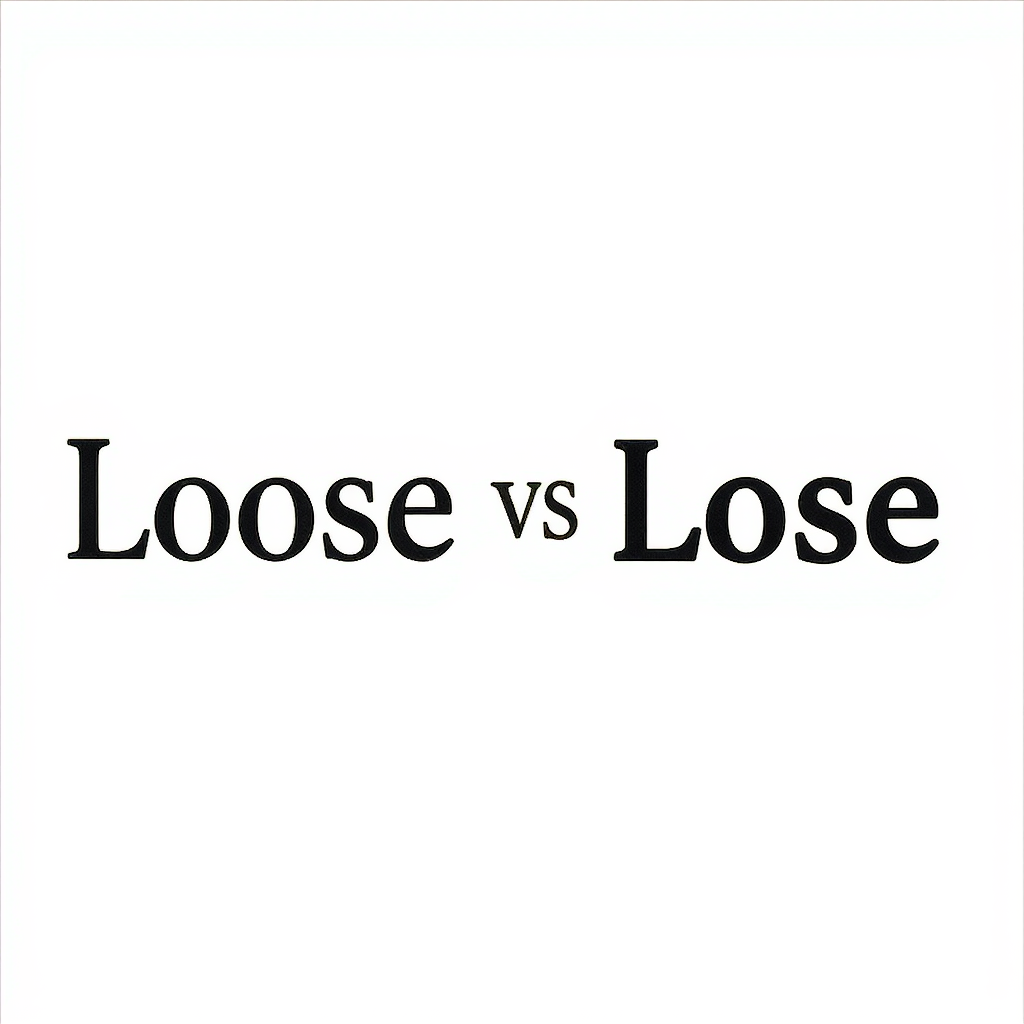“Loose” vs “Lose” - What’s the Difference?

English is full of pairs of words that look almost the same but have very different meanings. Loose and lose are a great example. Many learners (and even native speakers!) type one when they mean the other.
But don’t worry — Midoo AI will guide you step by step so you’ll always know which one to use.
Loose – Not Tight or Free
Loose is usually an adjective, and it means not tight, not firmly fixed, or free.
Examples of “Loose”:
- My shoes are loose, so I need to tie them tighter.
- The dog got loose and ran out of the yard.
- She wore a loose shirt because it was hot outside.
- The screw is loose, so the chair wobbles.
- His style of speaking is very loose and relaxed.
👉 Think of loose as the opposite of tight.
Lose – To Misplace or Not Win
Lose is a verb, and it means either to misplace something or to not win.
Examples of “Lose”:
- Don’t lose your phone at the concert.
- They might lose the game if they don’t play better.
- I always lose my keys in the morning.
- She doesn’t want to lose her best friend.
- If you don’t exercise, you might lose strength over time.
👉 Lose always has to do with either misplacing, failing to win, or no longer having something.
Why the Confusion?
The main reason people mix them up is spelling:
- Loose has two o’s.
- Lose has one o.
Because they sound similar, many learners write loose when they mean lose. But the meanings are completely different.
Quick Memory Tricks
Midoo AI suggests a couple of tricks to help you remember:
- Loose has two o’s → think of them as two open holes, like something not tight.
- Lose only has one o → because when you lose, you’re missing something (even an “o”!).
Common Mistakes Learners Make
Here are a few mistakes you should avoid:
❌ I don’t want to loose my job. ✔️ I don’t want to lose my job.
❌ She is afraid to lose her hair tie, so she keeps it loose. (wrong order) ✔️ She is afraid to lose her hair tie, so she keeps it loose__.
❌ If they play like this, they will loose. ✔️ If they play like this, they will lose__.
Quick Reference Table
| Word | Part of Speech | Meaning | Example |
|---|---|---|---|
| Loose | Adjective | Not tight, free, not fixed | The rope is loose. |
| Lose | Verb | To misplace, fail, or not win | Don’t lose your passport. |
FAQs
Can “loose” ever be a verb?
Yes, but it’s rare. “To loose” means “to set free” (e.g., “They loosed the horses”), but most people just use “release” instead.
Is “lose” only about games?
No. It can also mean to misplace something (lose your phone) or to stop having something (lose interest).
Why do people spell “lose” as “loose”?
Because they sound similar, and “loose” looks more natural with two o’s — but it’s incorrect in that context.
How can I practice the difference?
Write 5 sentences with “loose” (adjective) and 5 with “lose” (verb). Check if your sentence makes sense with “not tight” or “misplace.”
Which one is more common?
“Lose” is more common because people often talk about misplacing things or not winning. “Loose” is common when describing clothing or objects.
Final Thoughts
The difference is simple:
- Loose = not tight, free (adjective).
- Lose = misplace, fail, or not win (verb).
Once you link the spelling to the meaning with the memory tricks, you’ll never confuse them again. Midoo AI recommends practicing with short sentences every day until it feels automatic.